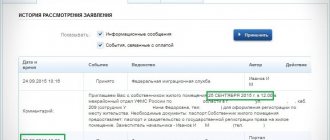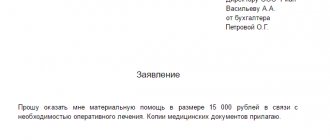Grounds for challenging privatization
Privatization is regulated by Federal Law No. 1541-1 of July 4, 1991 “On the privatization of housing stock in the Russian Federation.” According to this law, any citizen who believes that his rights have been violated can file a claim in court.
The following categories of citizens have the right to privatization:
- All adult citizens registered and living in residential premises on the basis of a social tenancy agreement.
- Minors permanently residing in municipal apartments.
During privatization, the consent of adults and minors aged 14 years or older is required to enter into a transaction. If among the residents there are minor children under 14 years of age, the approval of the transaction is carried out by the guardianship and trusteeship authorities.
Privatization may be declared invalid if the following conditions occur:
- Registration of privatization through an official who does not have sufficient authority.
- Re-use of the right to privatization.
- Exclusion of a minor from the text of the agreement.
- One of the registered persons living in the apartment did not participate in the privatization.
- Carrying out the procedure under pressure.
- Carrying out an illegal privatization procedure.
- Forgery of documents.
- Identification of non-existent facts during verification.
- Concealing the incapacity of one of the participants in the procedure.
- Misleading participants in privatization.
If one of these grounds is discovered, there are all grounds for filing a claim in court. But for this it is necessary to have documentary evidence of the illegality of privatization.
Court decisions on apartment privatization (judicial practice)
Since the Law of the Russian Federation dated July 4, 1991 No. 1541-1 “On the privatization of housing stock in the Russian Federation” has been in effect for almost 25 years, a large number of legal disputes have accumulated around it. amendments and changes were repeatedly made to the law , which led to the following: the application of one or another rule on privatization depends on the period of time in which the legal relationship arose.
Often, authorities do not want to understand all the documents and refuse to privatize a person’s residential premises, despite the fact that he had legal grounds for this. After which the citizen is forced to go to court.
Only in court does a full comprehensive consideration of the situation take place, hearing the arguments of all parties to the process and applying the rules of law that should be applied.
Example
Citizen S. filed a lawsuit against the administration of the Engels district of the Saratov region. demanding recognition of ownership of residential premises through privatization.
Before this, the plaintiff applied to the Administration to conclude an agreement on the privatization of the apartment in which he lives with his family on the basis of a warrant. I was refused due to the fact that the apartment was not listed in the register of rights as municipal property.
The court examined all the materials of the case and came to the conclusion: satisfy the claims of citizen S. in full and recognize his right of ownership of the residential premises in the manner of privatization. In accordance with Art. 47 of the Housing Code of the RSFSR, which was in force at the time the specified apartment was provided, the warrant is the only legal basis for moving in. In addition, all necessary documents were presented.
There is a lot of judicial practice on the privatization of housing with the participation of minors . This is due to the fact that at the beginning the law allowed not to include minor children in privatization. Many, after making these amendments, followed the old legislation, which gave interested citizens the right to invalidate privatization through the courts.
Of course, there are still many controversial issues . In this regard, before filing a claim in court, it is necessary to understand the legislation and pay attention to all changes in this area. With the same care, you need to prepare a reasoned statement of claim in the event of a refusal to privatize by a local administration body.
Question
Deadline for appealing a refusal to privatize
The Department of Housing Policy has received a refusal to privatize an apartment. We are going to file a lawsuit. How long can I appeal the Department's decision?
How to cancel privatization?
Privatization can be declared invalid only in court.
If the court's decision is positive, the transaction is declared invalid and the apartment is returned to municipal or city ownership. The judge has the opportunity not to cancel the procedure completely, but to include the citizen in privatization if his right was violated. Then, by court decision, all other persons remain the owners, and the plaintiff is allocated his allotted share. At the same time, the shares of the remaining co-owners decrease.
Remember! To challenge a transaction, a statute of limitations is established, which is 3 years. If the period has expired, it must be restored through the court. But there must be good reasons for this.
Prices for representation in a privatization case through court
| One-time representation | from 12 000 |
| One-time appearance at a government/other institution | from 10 000 |
| One-time transaction support | from 10 000 |
| Supporting a transaction for the privatization of an apartment through the court | from 15 000 |
| Representation of the plaintiff in court | from 25 000 |
| Representation of the defendant in court | from 20 000 |
| Personal lawyer | from 15 000 |
Procedure for canceling privatization
You can apply for cancellation of a transaction if the following conditions are met:
- The agreement is initially voidable.
- The agreement is void by force of law, regardless of a possible court decision (Article 166 of the Civil Code of the Russian Federation).
To cancel privatization through the court, you must perform the following sequence of actions:
| Application to the privatization counterparty | First of all, you need to report a violation of your rights to the organization that conducted the illegal transaction. |
| Going to court | It is necessary to submit a statement of claim with documents that can act as evidence of violation of rights: 1. If the plaintiff considers the transaction controversial, an application is submitted to recognize it as insignificant. 2. If there are serious assumptions about the nullity of the transaction, a claim is filed to declare the transaction invalid, since it has no legal force. |
| Exercising your right | Further actions depend on the court's decision. If the court decides to give a citizen the opportunity to exercise his right, with the court decision it is necessary to apply for the privatization of his part. If a decision has been made to allocate an equal share together with other co-owners, the decision is submitted to Rosreestr, where the necessary actions are taken. |
Going to court
A person has the right to go to court if his public or property interests were violated during the privatization process.
The Civil Procedure Code of the Russian Federation establishes the following mandatory conditions:
- The statement of claim is filed with the district court at the defendant’s place of residence.
- The claim is accompanied by documents that are indicated in it as appendices.
- A copy of the receipt for payment of the state duty is attached.
To confirm that you are right, you can use supporting documents, witness statements, factual data and other written evidence.
Note! If you do not pay the state fee, the claim will not be accepted for consideration.
Required documents
The statement of claim must be supported by a certain package of documents.
The following can be used as main documents:
- Receipt for payment of state duty.
- Certificate of ownership or extract from the Unified State Register of Real Estate.
- Evidence of the invalidity of the agreement.
In accordance with Art. 167 of the Civil Code of the Russian Federation, compensation for the value of real estate to which the plaintiff could establish his ownership is allowed. Copies of claims equal to the number of defendants are attached to the general package of documents . If this is not done, the trial may be suspended.
If the apartment has already been sold?
If the apartment was privatized and it was sold to third parties, the right of the interested party can be restored. But in this case, it is almost impossible to seize the apartment from a bona fide buyer, since he acted on the basis of the submitted ownership documents. Often the injured person is paid compensation for his share.
Sample statement of claim
It is important to draft the claim correctly so that the judge does not refuse to consider it on a formal basis.
You must indicate the name of the district court, your passport details and the details of the defendant. The text of the appeal should be drawn up on the merits of the case and be brief. It is important to accurately describe the circumstances of the case and what rights were violated. In this case, reference should be made to specific legislative acts, including the civil code and the Federal Law “On Privatization”. At the end of the text, the plaintiff's demand is clearly stated. Next is a list of applications, date and signature.
How to forcibly privatize an apartment through the court
If at least one of the above conditions is present, a voluntary transfer of ownership is not possible. In addition, it will not be possible to privatize housing if the apartment:
- is emergency housing;
- transferred under a specialized lease agreement;
- is located in an existing dormitory.
Order
The forced privatization algorithm is as follows:
- submit an application for privatization to the municipality;
- we receive a written refusal;
- file a lawsuit;
- We actively participate in hearings;
- We're waiting for the verdict
- we receive a court decision;
- re-submit the application for privatization to the administration;
- we pay the state fee;
- we conclude an agreement for the transfer of the apartment;
- We register ownership in Rosreestr.
Procedure
Initially, you must submit an application to the municipality for permission to carry out privatization. The maximum period for consideration is 1 month. If you receive a refusal, you must file a statement of claim. Privatization cases are considered within 2 months. During the preliminary hearing, the court may request from the participants in the process additional documents necessary to make a decision.
After the verdict is rendered, the parties have the right to file an appeal within 10 days, which is considered by the court of second instance. If the appeal was not filed in a timely manner, the decision of the court of first instance shall enter into legal force within one calendar month. With a copy of the writ of execution and other documents necessary for privatization, the citizen must contact the territorial body of Rosreestr, where after that. Once the re-registration of property rights to housing is completed, he will be given an extract from the Unified State Register of Real Estate.
Statement
To go to court, you must submit a statement of claim, drawn up in accordance with the requirements of Article 131 of the Code of Civil Procedure of the Russian Federation, in which you should indicate:
- name of the court site;
- details of the plaintiff (full name, residential address, passport details);
- data of the defendant (information about the owner of the apartment);
- the cost of the claim;
- confirmation of the violated right with the attachment of all necessary documents.
Required documents
The following are attached to the statement of claim:
- passport of the citizen applying to the court;
- certificate of family composition;
- social rental agreement;
- a certificate stating that the citizen did not use his right to privatization;
- information about payment of state duty;
- consent to privatization of all registered citizens with a copy of their passports.
Expenses
The state fee for filing a claim with the district court in 2021 is 300 rubles. In addition to this mandatory payment, you may need some additional costs to pay for the services of a lawyer who will represent your interests in court. Their size is set individually, according to the price list of the law office.
Deadlines
- It takes 2 months or more to consider a case in court;
- registration of documents in the territorial body of Rosreestr occurs within 14 calendar days.
Legal consequences
If a transaction is declared illegal, legal consequences arise for all its participants. The transaction itself will not entail consequences. In this case, the apartment returns to municipal ownership, and the plaintiff has the opportunity to apply for participation in privatization. The court decision is used as the basis.
Thus, challenging the transaction allows you to restore your rights. But this requires compelling reasons and documentary evidence.
The video story will tell you in what cases you can challenge privatization







